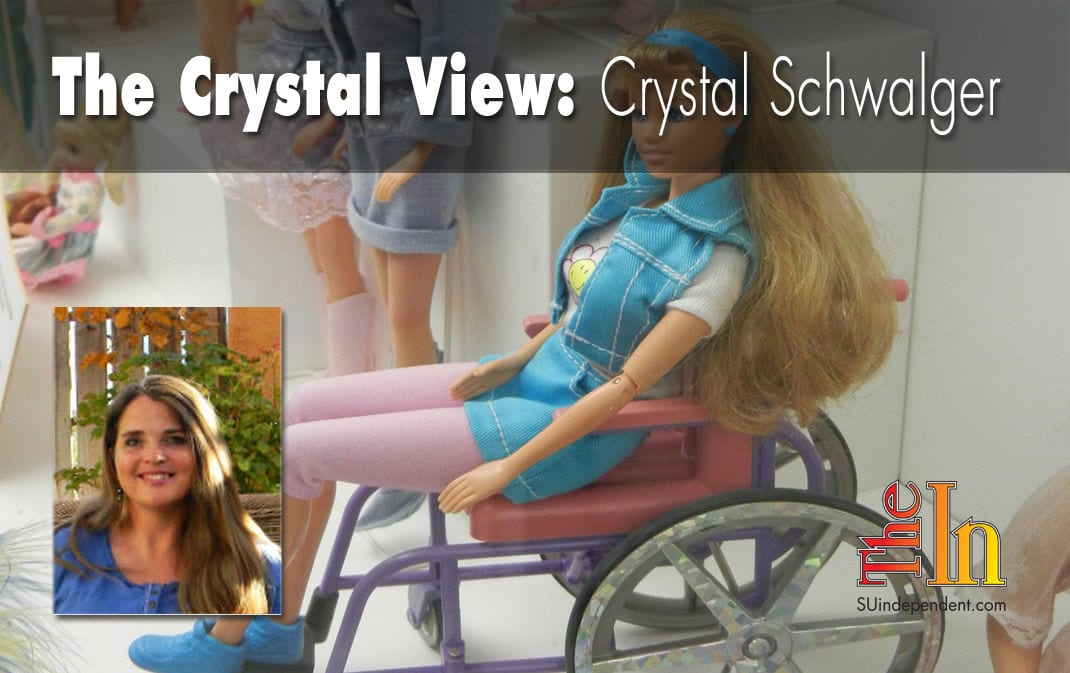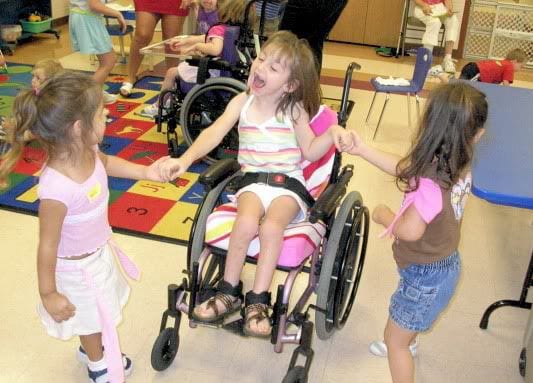 School is back in session, and parents everywhere are breathing a sigh of relief as well as anticipation for what the new school year will bring. Although most parents are happy that their kids are back in school, some also worry and hope that their kids are making friends. Having a good friend or two can mean the world of difference to a child, especially to one that may have special needs. As children go back to school, they will encounter other children who will inevitably be different from them. Chances are that your child is going to have a classmate or two who has some kind of special needs.
School is back in session, and parents everywhere are breathing a sigh of relief as well as anticipation for what the new school year will bring. Although most parents are happy that their kids are back in school, some also worry and hope that their kids are making friends. Having a good friend or two can mean the world of difference to a child, especially to one that may have special needs. As children go back to school, they will encounter other children who will inevitably be different from them. Chances are that your child is going to have a classmate or two who has some kind of special needs.

Disabilities come in all forms. Some are very obvious, such as a child in a wheelchair or with a noticeable physical difference. Others may not be so clear, such as those with learning disabilities. Just as it was important to help your child to make friends and value the differences in them, it is just as important to teach them to befriend and value those that may have special needs.
Children, of course, notice others who are different from them right away. They are naturally curious and want to know what happened and why. How you respond and answer their questions can help them gain understanding and appreciation of others. Parents can help their children to respect those with differences by modeling a pro-social behavior towards everyone. This being said, it means that we need to also be aware of how we react when we are around someone with special needs. Kids are like little sponges and can instantly sense when mom or dad is uncomfortable. Acting nervous or afraid around people with disabilities will only make your kids feel exactly the same way. If you can respond positively, though, kids will feel that and are more likely to have positive feelings towards those with disabilities rather than a fearful or negative one.
Lead by example
One of the most important things we can do to help our children to be more inclusive to others is to not become embarrassed or upset when they ask or point out a disability in others. It’s a wonderful thing that we as parents do not want our children to offend anyone, especially when we ourselves want to be sensitive to those with special needs. However, according to The Mobility Resource, getting angry or upset with a child because he or she points out or asks about why a person is in a wheelchair, etc., should be avoided. They go on to say that fear, shame, or embarrassment is not what you want your child to feel when he or she is around someone with a disability. Instead, answer the child as truthfully as you can, and explain in a positive rather than negative way about the disability. Once children understand something, they are less likely to be afraid or uncomfortable around it.
Teach through stories
To help facilitate their understanding, we as parents can help by encouraging them to learn more about other children with disabilities. We can watch movies or TV shows like Sesame Street or read books that portray special needs in a positive light. Books such as “Cinderella’s Magical Wheelchair,” “A Rainbow of Friends,” or “Marvelous Mercer” are all wonderful stories that show kids with special needs in a fun and entertaining way that kids can understand and learn from.
Focus on the positive
Lastly, we can help them is to point out that it’s OK to be different. By letting them know that being different is not a negative thing, we can help them to realize that everyone is different in their own way. Instead of pointing out how sad someone’s disability is, we could instead point out the positive things that he or she can do and how the disability is only a small part of who that person is.
One of my favorite examples of this concept is motivational speaker Nick Vujicic. Nick was born with a rare disorder called tetra-amelia syndrome which is characterized by the absence of all four limbs. He is not afraid to tell people about his condition or how hard it was for him to come to terms with it. He has a positive outlook on life and wants to help everyone understand their worth. He has no arm or legs, but still looks on the bright side of life and is thankful for the things that he does have and the things he can do. One thing he teaches is that all people, no matter who they are or the challenges they face, have a purpose. He also teaches that “Attitude is everything and self perception determines direction.” If he can have that outlook on life with all he has gone through, we as parents can teach our children to have a similar attitude towards themselves and others, including those with special needs. You can read more about Nick and his life here.
Being a parent is a huge responsibility, and molding our kids into adults who care about others should be one of our main goals. Children with disabilities or special needs want the same things as any other child. They want to have friends who care about them and want to be included with everyone else. If we can teach our children to not only respect their peers with disabilities but also to befriend them, the world could be a much better place.




I truly be leave this is one of the best articles she has wrote